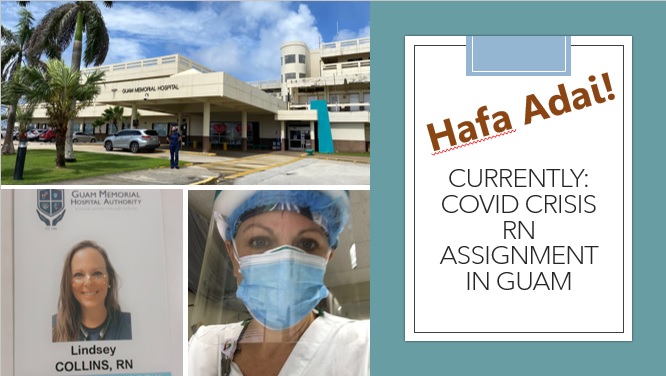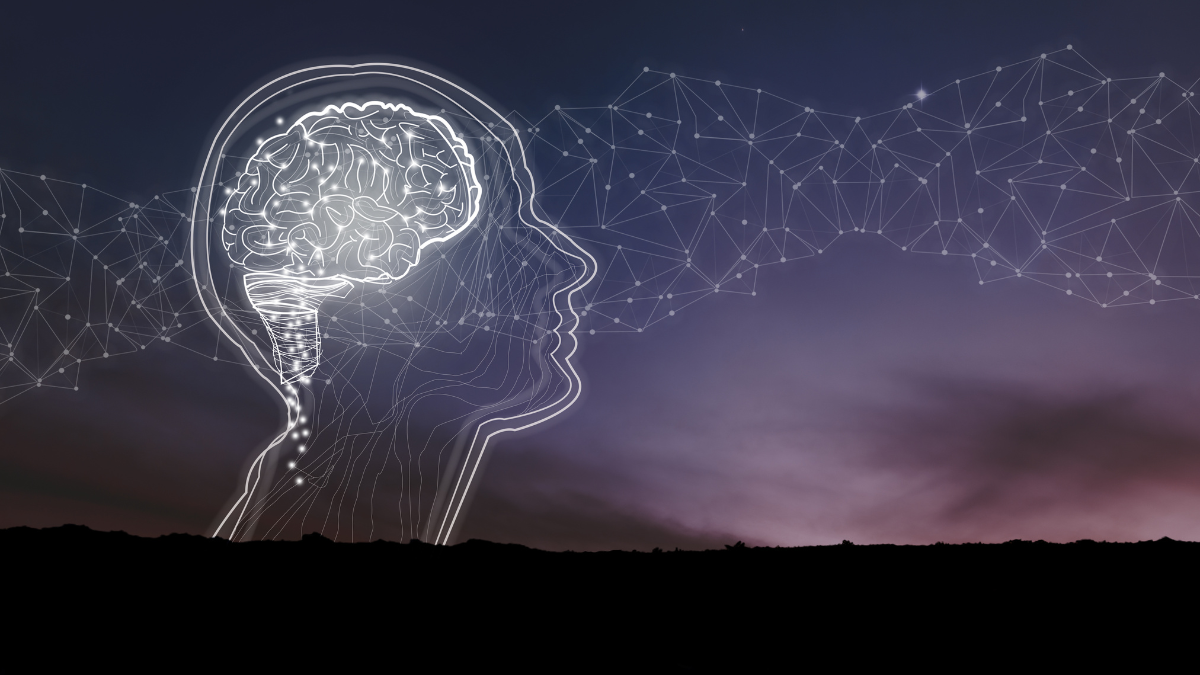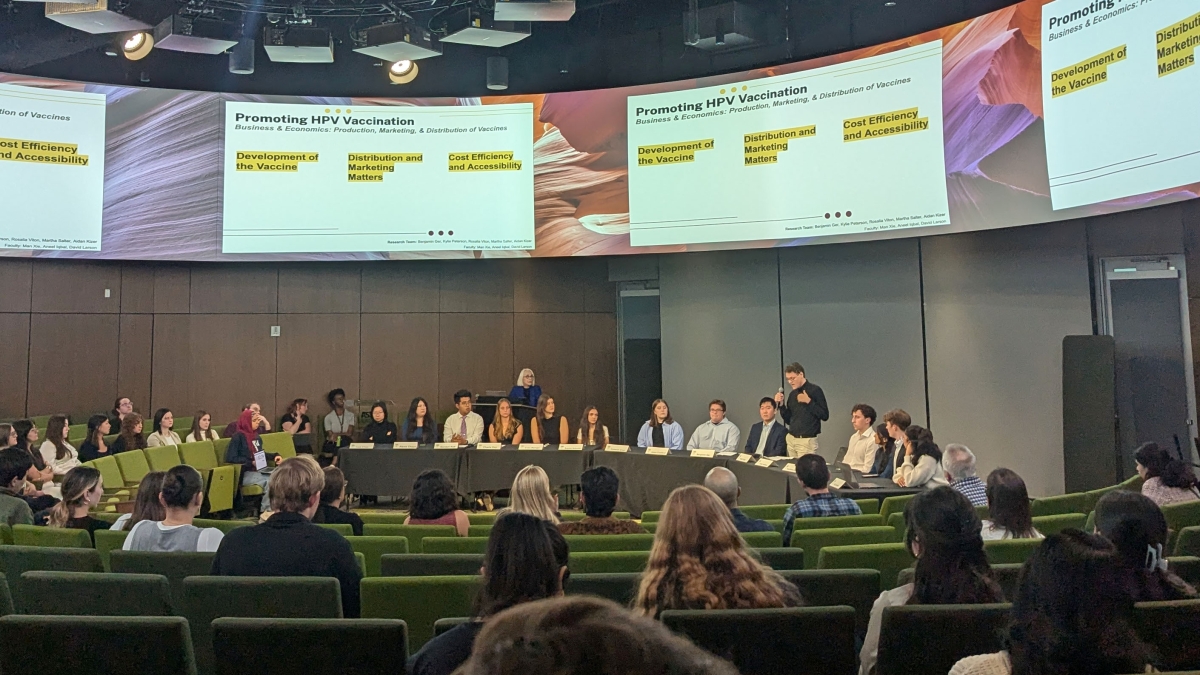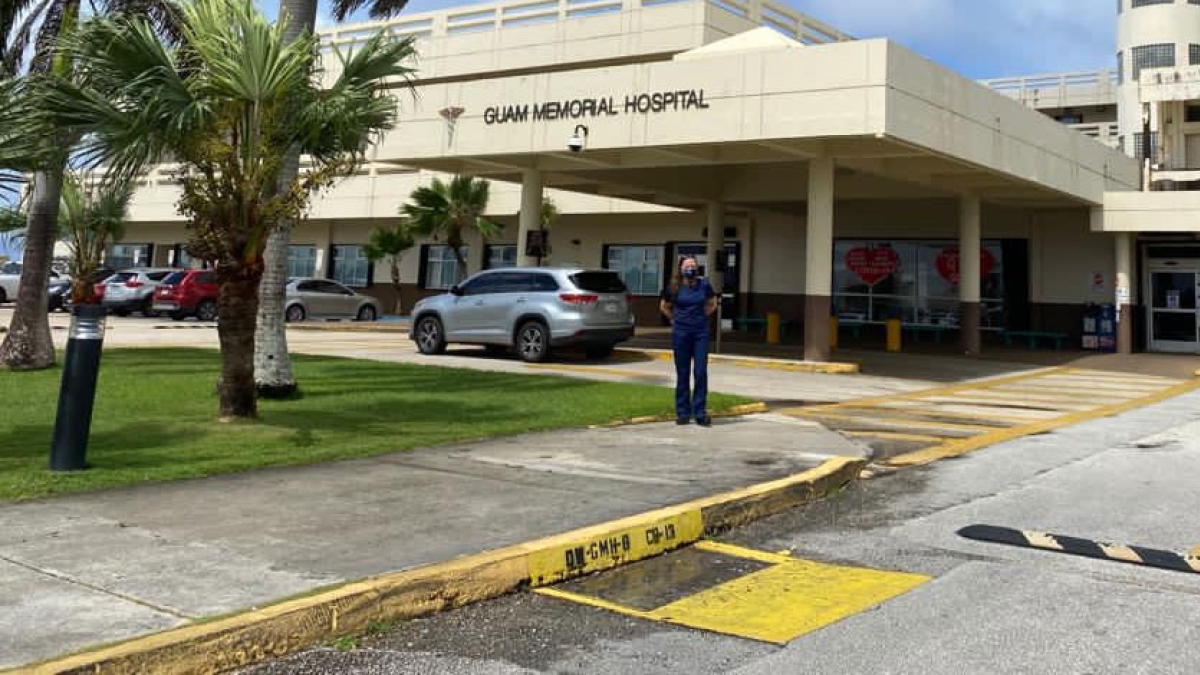Last fall, as populations across the globe struggled to adapt to life in the midst of a pandemic, ASU nursing student Lindsey Collins made the selfless decision to leave the familiarity of her home in Phoenix and head west to the U.S. island territory of Guam to lend a hand.
On Oct. 29, she signed a contract for the assignment. On Nov. 2, she received her flight information and flew out the very next day.
“Within 48 hours, I had relocated 6,436 miles away from Phoenix,” Collins said.
Despite the risk, Collins recognized the rare chance to help out as just the kind of opportunity she had been looking for.
“Ultimately, I decided to take the assignment because I am passionate about global health issues,” she said. “I knew that taking an international assignment would help give me that experience needed to make a difference and gain more knowledge for my dream job of working with global health organizations.”
As a student at ASU’s Edson College of Nursing and Health Innovation, the move came smack in the middle of the semester and the global health course she was taking online for her Bachelor of Science in nursing. Thankfully, course instructor Nancy Spahr completely understood.
A retired nurse herself, with more than 50 years of experience, including 17 years at Mayo Clinic, Spahr developed an interest in global health while working for the Peace Corps in the late 1960s, traveling to India and later Vietnam, where she helped found an organization to educate nurses there.

A slide from ASU nursing student Lindsey Collins' PowerPoint presentation shows her wearing PPE, ready to lend a hand at Guam Memorial Hospital. Photo courtesy of Lindsey Collins.
“We live in a global society and what happens in other countries has important relevance to all of us,” Spahr said.
As the main project of her global health course, students are required to research a health concern in a particular country, taking into account things like culture and existing policies, and then come up with their own recommendations for prevention and treatment options.
In 10 years of teaching the course, Collins’ trip to Guam marked the first time one of Spahr’s students was actually spending time in the place they were researching. And even though there were challenges – internet access isn’t great on the island, and most of her days were spent covered head-to-toe in PPE for hours on end – “Boy, she came through,” Spahr said of Collins.
“When I saw her project, it was just so outstanding, and I could see she had such a passion for what she was doing.”
Collins, a mother of two and a full-time nurse at Abrazo Arizona Heart Hospital in Phoenix, is currently working on earning her third degree from ASU. It wouldn’t be possible, she said, without the ability to take online courses like Spahr’s, which has helped her realize her true passion.
“I feel like global health is my calling,” Collins said. “The coursework pushed me to dive into topics. I love research! I always kept going down rabbit hole after rabbit hole. It is fascinating how subjects have so many layers and require community and government engagement, whether pandemics or policies.”
Though she is appreciative of the time she was able to spend in Guam and all she learned there, Collins is eager to get back to the Valley, and her kids.
“I'd like to go home and see them,” she said.
Top photo: ASU nursing student Lindsey Collins stands outside of Guam Memorial Hospital, where she has been working on the COVID-19 relief effort. Photo courtesy of Lindsey Collins
More Health and medicine
College of Health Solutions program doing its part during Salute to Service
It wasn’t always easy for Marine veteran Chuck Hale when he first returned to civilian life. But he’ll never forget the help he received from a fellow former service member.“The first vet that helped…

What makes human culture unique?
Why is human culture — the shared body of knowledge passed down across generations — so much more powerful than animal cultures?“What’s special about our species?” is a question scientists have…

ASU honors students work on HPV research as part of Barrett College's largest-ever group thesis
Not every undergraduate student comes across the opportunity to do research as part of a team. Even fewer have had the chance to join a team of 86 students doing multidisciplinary research with real-…
